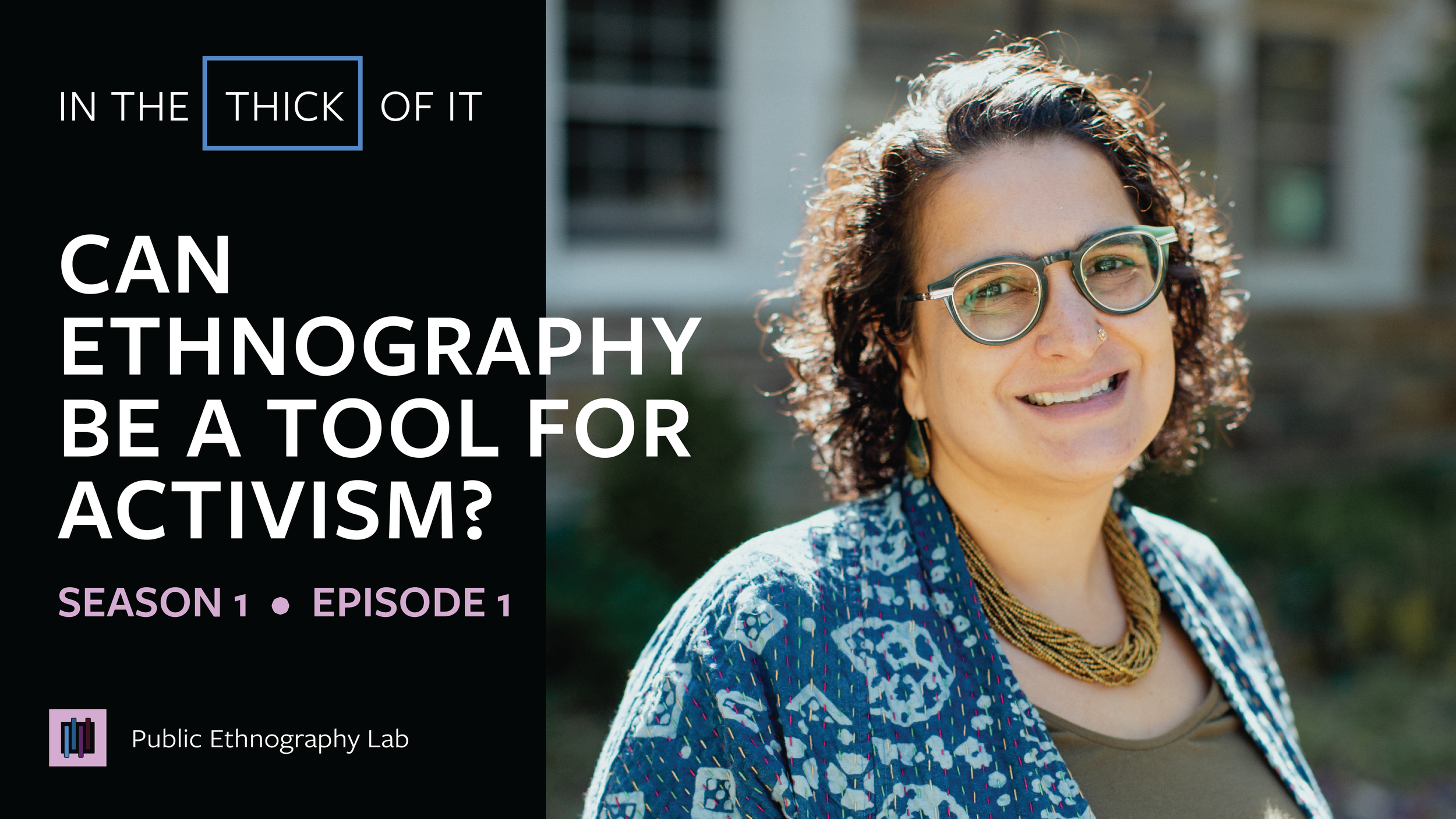Can ethnography be a tool of activism?
Can you do fieldwork on a roller coaster line?
When time is short, can ethnography still go deep?
We explore these questions - and more -
on our lab’s new podcast:
Our first episode is out now, and look out for new Season 1 episodes, releasing every other Tuesday.
“Welcome to In the Thick of It. On this podcast, we talk with researchers about how they do what they do, one method at a time.”
What can ethnography look like outside of the academy?
How do ethnographic practitioners apply their qualitative and anthropological expertise across different sectors and role?
Ethnography is fundamentally the practice of seeing and thinking critically. While ethnography is conventionally imagined as a method confined to purely academic endeavors, ethnographic skills — understanding the impact of systems and structures on individual behavior, assessing cultural similarities and differences of people and places, and uncovering overlooked details — are not just useful but highly sought-after skills across industry, non-profit, advocacy, research, policy, and government roles. Yet for ethnographic practitioners, particularly students, it can be difficult to see and articulate the opportunities and uses of qualitative skills.
In the Thick of It — the newest project from the Public Ethnography Lab — seeks to fill this gap. We explore and highlight possible trajectories for anthropological, ethnographic, and qualitative work beyond purely academic roles. In each episode, our host sits down with one researcher to understand how they approach and deploy qualitative methods in their day-to-day work. Listeners will get a behind-the-scenes picture of applied anthropology and learn about the choices, challenges, and creativity that go into qualitative methods.
Want to be notified when a new episode is released?
Meet your host
Eva Rey
Eva is a PhD candidate in the Department of Anthropology at American University. Born and raised in Bogotá, Colombia, she holds a Bachelor's degree in Anthropology and a Master's in Geopolitics. Her research explores how toys circulate as cultural objects that embody and transmit global economic dynamics, gender norms, and social and cultural aspirations. She is particularly interested in how Barbie dolls have mediated transnational relationships, neoliberal reforms, and girlhood in Latin America.
As a trained ethnographer, our host loves talking to people, asking big questions, and following unexpected stories wherever they lead. In this podcast, she invites guests to explore what ethnography looks like beyond the academy—transforming fieldnotes into conversations, theory into lived experience, and research into something you can actually listen to on your commute.















